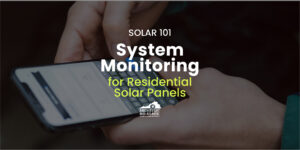Solar Panels
Solar Panels
Did you know that there have been over 45,000 solar energy systems installed in Virginia?
With solar’s popularity skyrocketing, it is becoming increasingly important that homeowners know the facts about what solar energy is, how it works, and the many benefits it provides.
Our goal is to provide informative, educational resources to homeowners who are interested in this exciting clean energy source. One of the best places to start is with the face of every solar energy system: solar panels.
How Solar Panels Work
Solar panels collect energy from the sun for conversion into usable electricity. Each solar panel is made up of solar cells. These solar cells are composed of two layers of silicon–an extremely abundant natural element–called p-type silicon and n-type silicon.
P-type silicon is full of electron vacancies: holes where electrons are missing. N-type silicon is full of extra electrons that are free to move around. P-type and n-type silicon sit next to each other in a solar cell, and the extra electrons from the n-type layer jump over to fill the electron vacancies in the p-type layer. This creates an electric field between the two silicon layers. When the photons inside sunlight knock electrons loose inside this field, the field moves these electrons, creating an electric flow known as direct current electricity.
Wires within the solar panels channel this DC electricity to an inverter that converts it to AC electricity, which is usable in the home. After this conversion is complete, the home can use this solar electricity to power its systems and appliances. Some homes are able to support a solar energy system that will fully offset the power the home consumes, while others can only support systems that will offset a portion of their consumption.
This process is called the photovoltaic effect, which is why people sometimes refer to solar panels as “photovoltaic” or “PV” panels. To learn more about this process, check out the American Chemical Society web page How a Solar Cell Works.
Solar Panel Quality and Lifespan
High quality solar panels are essential to ensure efficient energy production from your solar system. The solar panels we use at Earth Right Mid-Atlantic are considered “Tier One” panels, a term reserved for panels created by high quality, reliable manufacturers. Our panels are also monocrystalline, which means they are produced from pure silicon and are consequently more efficient.
Solar panels are guaranteed to maintain their production quality for decades. The average lifespan for a solar panel is 25-30 years. They will not just stop functioning after this amount of time. Instead, this means that after 25-30 years, the panels will not be producing quite as much energy as when they were first installed. The solar panels we use have a linear performance warranty stating that the panels will produce at least 86% of their nominal power for their first 25 years.
Some external factors can affect panel lifespan. If panels are not maintained correctly, they can degrade faster. Cleaning panels off with water to clear dust or debris can help keep your panels operating at their full capability. Environmental conditions can also play a role in the panel’s lifespan. Being attentive to the performance of your panels can alert you to a need for maintenance or repair.
Solar energy systems are becoming increasingly popular, but it is important to be well informed before joining the clean energy community. It is essential that you select high quality solar panels and maintain them properly so that you can get the most out of your solar energy system.
Do you want to learn more about solar? Subscribe to our Solar 101 blog series by entering your email address below, or click the link to view our corresponding Solar 101 videos!








